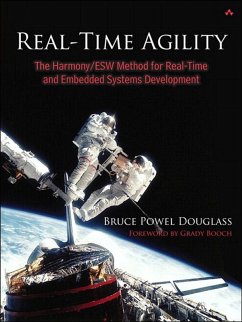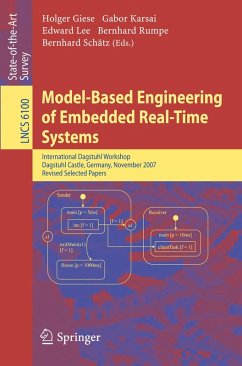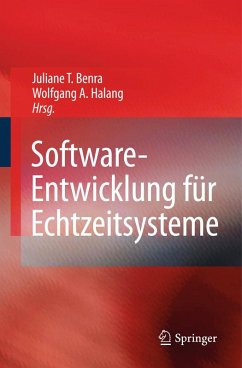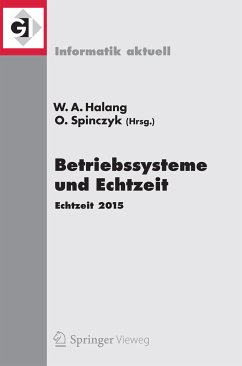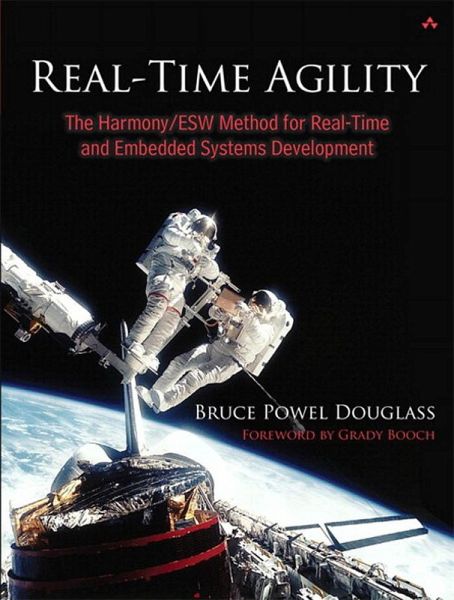
Real-Time Agility (eBook, PDF)
The Harmony/ESW Method for Real-Time and Embedded Systems Development
Versandkostenfrei!
Sofort per Download lieferbar
33,95 €
inkl. MwSt.
Weitere Ausgaben:

PAYBACK Punkte
17 °P sammeln!
Real-time and embedded systems face the same development challenges as traditional software: shrinking budgets and shorter timeframes. However, these systems can be even more difficult to successfully develop due to additional requirements for timeliness, safety, reliability, minimal resource use, and, in some cases, the need to support rigorous industry standards.In Real-Time Agility, leading embedded-systems consultant Bruce Powel Douglass reveals how to leverage the best practices of agile development to address all these challenges. Bruce introduces the Harmony/ESW process: a proven, start...
Real-time and embedded systems face the same development challenges as traditional software: shrinking budgets and shorter timeframes. However, these systems can be even more difficult to successfully develop due to additional requirements for timeliness, safety, reliability, minimal resource use, and, in some cases, the need to support rigorous industry standards.
In Real-Time Agility, leading embedded-systems consultant Bruce Powel Douglass reveals how to leverage the best practices of agile development to address all these challenges. Bruce introduces the Harmony/ESW process: a proven, start-to-finish approach to software development that can reduce costs, save time, and eliminate potential defects.
Replete with examples, this book provides an ideal tutorial in agile methods for real-time and embedded-systems developers. It also serves as an invaluable "in the heat of battle" reference guide for developers working to advance projects, both large and small.
Coverage includes
In Real-Time Agility, leading embedded-systems consultant Bruce Powel Douglass reveals how to leverage the best practices of agile development to address all these challenges. Bruce introduces the Harmony/ESW process: a proven, start-to-finish approach to software development that can reduce costs, save time, and eliminate potential defects.
Replete with examples, this book provides an ideal tutorial in agile methods for real-time and embedded-systems developers. It also serves as an invaluable "in the heat of battle" reference guide for developers working to advance projects, both large and small.
Coverage includes
- How Model-Driven Development (MDD) and agile methods work synergistically
- The Harmony/ESW process, including roles, workflows, tasks, and work products
- Phases in the Harmony/ESW microcycle and their implementation
- Initiating a real-time agile project, including the artifacts you may (or may not) need
- Agile analysis, including the iteration plan, clarifying requirements, and validation
- The three levels of agile design: architectural, mechanistic, and detailed
- Continuous integration strategies and end-of-the-microcycle validation testing
- How Harmony/ESW's agile process self-optimizes by identifying and managing issues related to schedule, architecture, risks, workflows, and the process itself
Dieser Download kann aus rechtlichen Gründen nur mit Rechnungsadresse in A, B, BG, CY, CZ, D, DK, EW, E, FIN, F, GR, HR, H, IRL, I, LT, L, LR, M, NL, PL, P, R, S, SLO, SK ausgeliefert werden.




